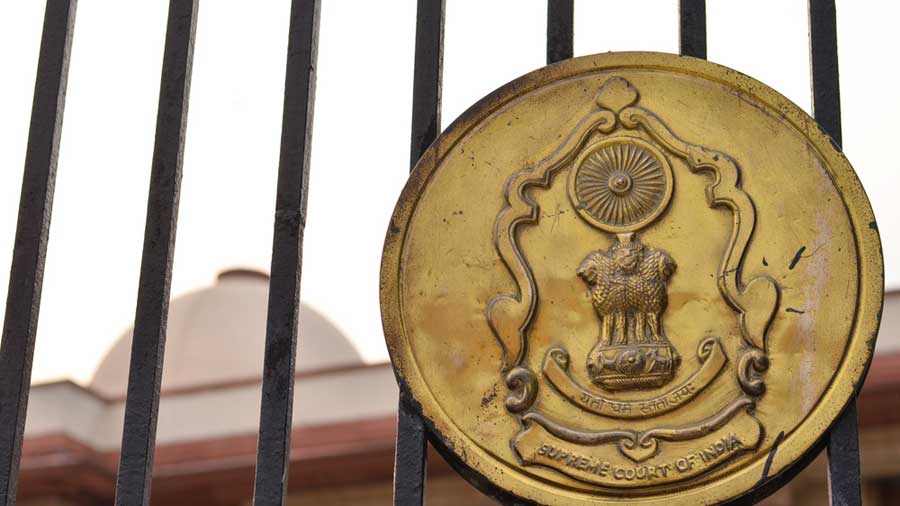A five-judge constitution bench of the Supreme Court on Friday asked the Centre to consider amending the law dealing with cheque bounce disputes to allow the clubbing of cases against a person into a single trial to be decided within 12 months.
The court said there was a “humongous pendency” of complaints under section 138 of the Negotiable Instruments Act, 1881.
A preliminary report submitted by the amici curiae appointed by the court — Siddharth Luthra and K. Parameshar — in October last year said that there were 35.16 lakh cases pending in various courts under section 138 of the NI Act out of 2.31 crore criminal cases in the country.
The criminal case that prompted the court to register a suo motu criminal writ petition captioned “Expeditious trial of cases under section 138 of the NI Act 1881” arose from the dishonour of two cheques for an amount of Rs 1.7 lakh that has been pending for 16 years.
The apex court said magistrates can no longer exercise powers under Section 258 of Code of Criminal Procedure (CrPC) to stop proceedings in cheque bounce cases under Section 138 of the Negotiable Instruments Act.
The magistrates need to record reasons before converting a trial to a summons trial from a summary one.
Summary trials refer to cases where the magistrate is not required to frame charges against the accused and can dispose of the cases in a quick manner without the elaborate requirement needed in a regular trial.
In a case tried summarily under Code of Criminal Procedure (CrPC), if the accused does not plead guilty, it is sufficient for a magistrate to record evidence and deliver a judgment instantly.
The Supreme Court said magistrates shall hold inquiry before issuing summons to the accused who resides beyond the territorial jurisdiction of the court.
Evidence of witnesses on behalf of the complainant shall be permitted to be taken on affidavit, the apex court said.
In suitable cases, the magistrate can restrict the inquiry to the examination of documents without insisting on examination of witnesses.
The court said that the issues that it had not dealt with would be considered by a committee headed by Justice R.C. Chavan, former judge of the Bombay High Court.
On March 10, the top court had constituted the committee to submit a report in three months specifying the steps to be taken for early disposal of cheque bounce cases across the country.
It said a three-judge bench would now take up the suo motu matter on ensuring early disposal of cheque bounce cases after eight weeks.











